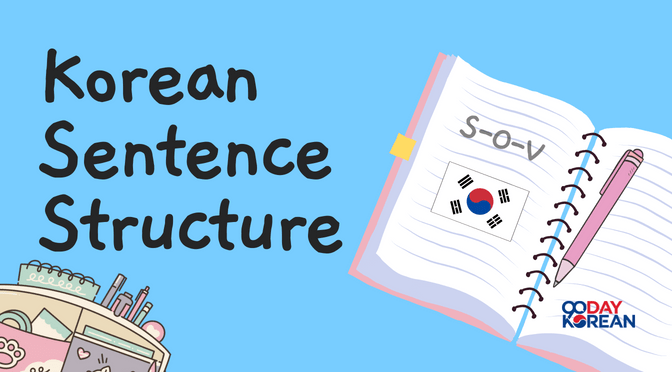Korean Adverbs are another part of Korean grammar greatly connected with Korean verbs and adjectives. It can be used in sentences, phrases, and clauses – so basically, it can be a useful addition to any type of written or spoken word!
Adverbs may not be as easy to detect in sentences as Korean verbs, adjectives, and nouns might be. However, by the end of this article, we’re confident that you’ll learn Korean adverbs’ rules and master them!
Contents
What are Korean adverbs?
Korean Adverbs are used to describe a verb or an adjective further. You can expect Korean adverbs to operate largely in a similar fashion as they do in other languages. There are three ways in which adverbs are created and used in the Korean language, and at least 100 commonly used Korean adverbs.
To understand the basics of Korean adverbs, first, you will want to fully grasp the lessons on Korean verbs and adjectives and basic Korean grammar.
“Adverb” in Korean
The Korean word for “adverb” is 부사 (busa).
How to make adverbs in Korean – the three basic rules of Korean adverbs
Before moving onto the list of Korean adverbs we want to equip you with right away, let’s look at the Korean grammar rules with which adverbs are formed.
Do note that there are also numerous adverbs, such as some adverbs related to frequency, which do not need to follow any of these rules and simply stand on their own. In their case, you, unfortunately, have no option but to memorize which adverbs follow the rules and which do not.
Thankfully, there are quite clear steps regarding what kind of adverbs fit which rule category. And to make memorizing a little easier, we’ve included the special adverbs that aren’t conjugated by any rules as a separate chart for you to memorize from.
1) 히 (hi)
The conjugation 히 (hi) is used when you form adjectives into adverbs. This is usually added to adjectives that end with -하다 (hada). To do that, you replace -하다 (hada) in the dictionary form of the word with 히 (hi).
For example:
Edit
English VerbKorean VerbEnglish AdverbKorean Adverbto be hasty성급하다 (seonggeupaha)hastily성급히 (seonggeupi)to be vague막연하다 (magyeonhada)vaguely막연히 (magyonhi)
In this example, both 성급하다 (seonggeupaha) and 막연하다 (magyeonhada) end with -하다 (hada). However, in order to turn them from adjectives into adverbs, the 하다 (hada) gets removed and is replaced by the syllable 히 (hi).
Note that some 하다 (hada) adjectives can be used with 이(-i) instead of 히 (hi).
For example, if the stem ends in ㅅ, 이 is used for adverbs.
깨끗하다 (kkaekkeuthada) to be clean → 깨끗이 (kkaekkeusi) cleanly
2) ~게 (ge)
With ~게 (ge) conjugations, you can make an adverb in Korean out of an adjective. In this case, you keep the entire word stem and simply replace 다 (ge) with 게 (ge).
For example:
Edit
Korean AdjectiveEnglish AdjectiveEnglish AdverbKorean Adverb (keuda)bigin a big manner (keuke) (geonjohada)drydryly (geonjohage) (nappeuda)badbadly (nappeuge)
As you can see in the above examples, 다 (da) gets removed from the verb stem, and 게 (ge) gets added, and a Korean adverb is thus formed. Do note that in the case of some adjectives with -하다 (hada) endings, the syllable 히 (hi)-rule is used. You, unfortunately, simply have to learn to memorize these different adverbs in Korean that “break” the rule.
3) ~으로 (euro)
Finally, the third way of forming Korean adverbs. Technically, ~으로 (euro) is a post-position, not an adverb. But when used together with adjectives, you can create adverbs from them. If you translate Korean to English, 으로 adverbs mean “in some way,” which helps explain why they can be used in adverb form as well. It’s used with adjectives that end in the suffix 적 (jeok).
For example:
Edit
English AdjectiveKorean AdjectiveEnglish AdverbKorean Adverbrational (iseongjeok)rationally (iseongjeogeuro)economical (gyeongjejeok)economically (gyeongjejeogeuro)
With each adjective in the example above, the great thing is that you don’t have to remove any part of it; you just simply add 으로 (euro)!
List of the most common adverbs in Korean
Below, you can find different types of adverbs and lists of Korean vocabulary formed from adjectives to their adverb form, which you can also start using right away.
Korean adverbs of degree
If you’d like to describe something in terms of its degree or intensity, these are the adverbs that you can use.
Edit
English VerbKorean VerbEnglish AdverbKorean Adverbbad (nappeuda)badly (nappeuge)certain (hwaksilhada)certainly, decidedly (hwaksilhi)complete (wanjeonhada)completely (wanjeonhi)complete, absolute, entire (jeonjeok)completely, absolutely, entirely (jeonjeogeuro)continuous (jisokjeok)continually (jisokjeogeuro)detailed (guchejeok)in detail, concretely (guchejeogeuro)endless (kkeuteopda)endlessly (kkeuteopsi)enourmous (eomcheongnada)enormously (eomcheongnage)even, regular (goreuda)evenly (goreuge)faint, dim (huimihada)faintly, dimly (huimihage)far (meolda)far (meolge)fervent, devout (yeollyeolhada)fervently (yeollyeolhage)full (chungbunhada)fully (chungbunhi)fundamental (gibonjeok)fundamentally (gibonjeogeuro)great (daedanhada)greatly (daedanhi)intense, passionate, ardent (yeoljeongjeok)intensely, passionately (yeoljeongjeogeuro)large크다 (keuda)largely (keuge)light가볍다 (gabyeopda)lightly (gapyeopge)perfect완벽하다 (wanbyeokada)perfectly (wanbyeokage)positive (geungjeongjeok)positively (geungjeongjeogeuro)relative (sangdaejeok)relatively (sangdaejeogeuro)simple간단하다 (gandanhada)simply (gandanhi)small작다 (jakda)little (jakge)special특별하다 (teukbyeolhada)especially (teukbyeolhi)strong (ganghada)strongly (ganghage)sufficient충분하다 (chungbunhada)sufficiently, enough충분히 (chungbunhi)thorough (cheoljeohada)thoroughly (cheoljeohi)
Korean adverbs of degree without rules
Below is another set of adverbs of degree. However, these do not follow any rules.
Edit
English AdverbKorean Adverbalmost, nearly, virtually거의 (geoui)especially (teuki)extremely (geukdoro)extremely, so, utterly아주 (aju)fairly, quite, rather꽤 (kkwae)hardly, scarcely (gyeou)highly (godoro)indeed (gwayeon)less (deo-jeokge)most (jeil)practically, virtually (sasilsang)somewhat (yakgan)too너무 (neomu)very매우 (maeu)well (jal)
Korean adverbs of frequency
Here are the common Korean adverbs in terms of frequency. They describe how often things occur or happen.
Edit
English AdjectiveKorean AdjectiveEnglish AdverbKorean Adverbgeneral (ilbanjeok)generally (ilbanjeogeuro)regular, periodic (jugijeok)regularly (jugijeogeuro)chronic (gojiljeok)chronically (gojiljeogeuro)rare (deumulda)rarely, sparsely드물게 (deumulge)late늦다 (neutda)late늦게 (neutge)
Korean adverbs of frequency without any rule
Similar to Korean adverbs of degree, some adverbs of frequency also do not follow any rule. Here are some of them.
Edit
English AdverbKorean Adverbalways항상 (hangsang)always (eonjena)all the time (naenae)daily (nanari)daily (ilil)usually, normally보통 (botong)frequently, often자주 (jaju)occasionally가끔 (gakkeum)sometimes (ttaettaero)seldom좀처럼 (jomcheoreom)never결코 (gyeolko)annually매년 (maenyeon)soon, instantly곧 (got)eventually (gyeolguk)hourly (mae-si)nightly (bammada)weekly (jugan)fortnightly (gyeokjuro)monthly (maewol)yearly매년 (maenyeon)already (imi)already (beolsseo)at long last (deudieo)before (jeone)earlier (apseon)early일찍 (iljjik)finally (machimne)first (useon)first (cheoeum)last (majimak)lately (choegeune)next (daeumeuro)previously (ijeone)recently (choegeune)still (ajikdo)yet (ajik)
Korean adverbs of manner
The words for the adverbs of manner below are used to describe the action and descriptive verbs in terms of manner.
Edit
English AdjectiveKorean AdjectiveEnglish AdverbKorean Adverbabnormal (bijeongsangjeok)abnormally (bijeongsangjeogeuro)accidental (uyeonhada)accidentally, by chance (uyeonhi)active (jeokgeukjeok)actively (jeokgeukjeogeuro)active, energetic (hwalgichada)actively, energetically (hwalgichage)adventurous (moheomjeok)adventurously (moheomjeogeuro)angry화나다 (hwanada)angrily (hwanage)animated, brisk활발하다 (hwalbalhada)animatedly, briskly (hwalbalhage)anxious불안하다 (buranhada)anxiously (buranhage)arrogant (geomanhada)arrogantly (geomanhage)automatic (jadongjeok)automatically (jadongeuro)awkward (eosekhada)awkwardly (eosekhage)bad나쁘다 (nappeuda)badly나쁘게 (nappeuge)bashful부끄럽다 (bukkeureopda)bashfully (bukkeureopge)beautiful아름답다 (areumdapda)beautifully (areumdapge)beautiful (a man’s action)멋지다 (meotjida)beautifully (meotjige)big크다 (keuda)in a big manner크게 (keuge)bitter, grief-stricken, sorrowful (bitonghada)bitterly (bitonghage)bleak (aseulaseulhada)bleakly (aseulaseulhage)blind (maengmokjeok)blindly (maengmokjeogeuro)boastful자랑스럽다 (jarangseureopda)boastfully (jarangseureopge)bold, daring (daedamhada)boldly, daringly (daedamhage)brave용감하다 (yonggamhada)bravely (yonggamhage)bright밝다 (balda)brightly (balge)busy (bappeuda)busily (bappeuge)calm, hushed, still (goyohada)calmly (goyohi)careful (kkomkkomhada)carefully (kkomkkomhi)careful, cautious조심스럽다 (josimseureopda)carefully, cautiously (josimseureopge)careless (gyeongsolhada)carelessly (gyeongsolhage)cautious (sinjunghada)cautiously (sinjunghi)cheerful유쾌하다 (yukwaehada)cheerfully유쾌하게 (yukwaehage)clean깨끗하다 (kkaekkeuthada)cleanly깨끗하게 (kkaekkeuthage)clear분명하다 (bunmyeonghada)clearly, decidedly분명히 (bunmyeonghi)clever영리하다 (yeongnihada)cleverly영리하게 (yeongnihage)comfortable편하다 (pyeonhada)comfortably편하게 (pyeonhage)convenient편리하다 (pyeollihada)conveniently편리하게 (pyeollihage)cool쿨하다 (kulhada)coolly쿨하게 (kulhage)cooperative협동적 (hyeopdongjeok)cooperatively협동적으로 (hyeopdongjeogeuro)correct올바르다 (olbareuda)correctly올바르게 (olbareuge)courageous용기있다 (yonggiitda)courageously용기있게 (yonggiitge)cruel잔인하다 (janinhada)cruelly잔인하게 (janinhage)dangerous위험하다 (wiheomhada)dangerously위험하게 (wiheomhage)deceiving기만적 (gimanjeok)deceivingly기만적으로 (gimanjeogeuro)defiant도전적 (dojeonjeok)defiantly도전적으로 (dojeonjeogeuro)deliberate신중하다 (sinjunghada)deliberately신중하게 (sinjunghage)delicious맛있다 (masitda)deliciously맛있게 (masitge)detailed자세하다 (jasehada)in detail자세히 (jasehi)difficult어렵다 (eoryeopda)with difficulty, the hard way어렵게 (eoryeopge)diligent부지런하다 (bujireonhada)diligently부지런히 (bujireonhi)doubtful애매하다 (aemaehada)doubtfully애매하게 (aemaehage)dramatic극적 (geukjeok)dramatically극적으로 (geukjeogeuro)easy, simple용이하다 (yongihada)easily, simply용이하게 (yongihage)elegant, graceful우아하다 (uahada)elegantly, gracefully, daintily우아하게 (uahage)enormous, great엄청나다 (eomcheongnada)enormously, greatly엄청나게 (eomcheongnage)enthusiasm, enthusiastic열심 (yeolsim)enthusiastically열심히 (yeolsimhi)enthusiastic열정적 (yeoljeongjeok)enthusiastically열정적으로 (yeoljeongjeogeuro)exact정확하다 (jeonghwakada)exactly정확히 (jeonghwaki)excited신나다 (sinnada)excitedly신나게 (sinnage)faithful충실하다 (chungsilhada)faithfully충실히 (chungsilhi)famous뛰어나다 (ttwieonada)famously뛰어나게 (ttwieonage)fast, quick빠르다 (ppareuda)fast, quickly, swiftly빠르게 (ppareuge)fatal치명적 (chimyeongjeok)fatally치명적으로 (chimyeongjeogeuro)fervent, enthusiastic, wild열광적 (yeolgwangjeok)ferventely, enthusiastically, wildly열광적으로 (yeolgwangjeogeuro)fierce, ferocious, vehement, violent맹렬하다 (maengnyeolhada)fiercely, ferociously, vehemently맹렬하게 (maengnyeolhage)fierce, stormy, wild사납다 (sanapda)fiercely사납게 (sanapge)fond허황되다 (heohwangdoeda)fondly허황되게 (heohwangdoege)formal공식적 (gongsikjeok)formally공식적으로 (gongsikjeogeuro)fortunate, lucky다행스럽다 (dahaengseureopda)fortunately, luckily다행스럽게 (dahaengseureopge)free자유롭다 (jayuropda)freely자유롭게 (jayuropge)frightful, scary무섭다 (museopda)frightfully무섭게 (museopge)fun재미있다 (jaemiitda)entertainingly재미있게 (jaemiitge)furious, ferocious, fierce, vehement, violent맹렬하다 (maengnyeolhada)furiously, ferociously, fiercely, vehemently, violently맹렬히 (maengnyeolhi)generous관대하다 (gwandaehada)generously관대하게 (gwandaehage)gentle, soft부드럽다 (budeureopda)gently, softly부드럽게 (budeureopge)glad기쁘다 (gippeuda)gladly기쁘게 (gippeuge)greedy게걸스럽다 (gegeolseureopda)greedily게걸스럽게 (gegeolseureopge)happy행복하다 (haengbokada)happily, blissfully행복하게 (haengbokage)hasty황급하다 (hwanggeupada)hastily황급히 (hwanggeupi)healthy건강하다 (geonganghada)healthily건강하게 (geonganghage)heavy무겁다 (mugeopda)heavily무겁게 (mugeopge)honest, frank, open솔직하다 (soljikada)honestly, frankly, openly솔직히 (soljiki)humble천하다 (cheonhada)humbly천하게 (cheonhage)informal비공식적 (bigongsik)informally비공식적으로 (bigongsikjeogeuro)innocent천진난만하다 (cheonjinnanmanhada)innocently천진난만하게 (cheonjinnanmanhage)innovative획기적 (hoekgijeok)innovatively획기적으로 (hoekgijeogeuro)instinctive본능적 (bonneungjeok)instinctively본능적으로 (jijeogeuro)intentional의도적 (uidojeok)intentionally의도적으로 (uidojeogeuro)irritable과민하다 (gwaminhada)irritably과민하게 (gwaminhage)kind친절하다 (chinjeolhada)kindly친절하게 (chinjeolhage)long-term장기적 (jangijeok)in the long term장기적으로 (janggijeogeuro)loose느슨하다 (neuseunhada)loosely느슨하게 (neuseunhage)loud소란하다 (soranhada)loudly소란하게 (soranhage)manual수동적 (sudongjeok)manually수동으로 (sudongeuro)meticulous, detailed면밀하다 (myeonmilhada)meticulously면밀하게 (myeonmilhage)miraculous기적적 (gijeokjeok)miraculously기적적으로 (gijeokjeogeuro)mortal치명적 (chimyeongjeok)mortally치명적으로 (chimyeongjeogeuro)mysterious신비롭다 (sinbiropda)mysteriously신비롭게 (sinbiropge)natural자연스럽다 (jayeonseureopda)naturally자연스럽게 (jayeonseureopge)neat깔끔하다 (kkalkkeumhada)neatly깔끔하게 (kkalkkeumhage)nervous초조하다 (chojohada)nervously초조하게 (chojohage)noisy시끄럽다 (sikkeureopda)noisily시끄럽게 (sikkeureopge)obedient순순하다 (sunsunhada)obediently순순히 (sunsunhi)painful고통스럽다 (gotongseureopda)painfully고통스럽게 (gotongseureopge)patient끈기 있다 (kkeungi itda)patiently끈기 있게 (kkeungi itge)personal사적 (sajeok)personally사적으로 (sajeogeuro)physical신체적 (sinchejeok)physically신체적으로 (sinchejeogeuro)pleasant즐겁다 (jeulgeopda)pleasantly, delightfully즐겁게 (jeulgeopge)polite공손하다 (gongsonhada)politely공손히 (gongsonhi)poor, low저조하다 (jeojohada)poorly저조하게 (jeojohage)powerful강력하다 (gangnyeokada)powerfully강력하게 (gangnyeokage)pretty이쁘다 (ippeuda)prettily이쁘게 (ippeuge)psychological심리적 (simnijeok)psychologically심리적으로 (simnijeogeuro)qualitative질적 (jiljeok)qualitatively질적으로 (jiljeogeuro)quiet조용하다 (joyonghada)quietly조용하게 (joyonghage)rapid급속하다 (geupsokada)rapidly급속히 (geupsoki)reckless무모하다 (mumohada)recklessly무모하게 (mumohage)rightful정당하다 (jeongdanghada)rightfully정당하게 (jeongdanghage)rude무례하다 (muryehada)rudely무례하게 (muryehage)sad슬프다 (seulpeuda)sadly슬프게 (seulpeuge)safe안전하다 (anjeonhada)safely안전하게 (anjeonhage)selfish이기적 (igijeok)selfishly이기적으로 (igijeogeuro)serious진지하다 (jinjihada)seriously진지하게 (jinjihage)sharp날카롭다 (nalkaropda)sharply날카롭게 (nalkaropge)short-term단기적 (dangijeok)in the short term단기적으로 (dangijeogeuro)shy수줍다 (sujupda)shyly수줍게 (sujupge)silent조용하다 (joyonghada)silently조용하게 (joyonghage)simple, easy, brief간단하다 (gandanhada)briefly, simply, easily간단히 (gandanhi)slow천천하다 (cheoncheonhada)slowly천천히 (cheoncheonhi)smooth매끄럽다 (maekkeureopda)smoothly매끄럽게 (maekkeureopge)soft부드럽다 (budeureopda)softly부드럽게 (budeureopge)solemn엄숙하다 (eomsukada)solemnly엄숙하게 (eomsukage)stern엄하다 (eomhada)sternly엄하게 (eomhage)straight똑바르다 (ttokbareuda)straightly똑바르게 (ttokbareuge)strict엄격하다 (eomgyeokada)strictly엄격히 (eomgyeoki)stupid멍청하다 (meongcheonghada)stupidly멍청하게 (meongcheonghage)successful성공적 (seonggongjeok)successfully성공적으로 (seonggongjeogeuro)suspicious의심스럽다 (uisimseureopda)suspiciously의심스럽게 (uisimseureopge)tender다정하다 (dajeonghada)tenderly다정하게 (dajeonghage)tentative시험적 (siheomjeok)tentatively시험적으로 (jamjeongjeogeuro)thoughtful, considerate사려 깊다 (saryeo gipda)thoughtfully, wisely사려 깊게 (saryeo gipge)tight단단하다 (dandanhada)tightly단단히 (dandanhi)truthful정직하다 (jeongjikada)truthfully정직하게 (jeongjikage)unfortunate, sorry유감스럽다 (yugamseureopda)regrettably유감스럽게 (yugamseureopge)vacant, blank, absentminded망연하다 (mangyeonghada)vacantly, blankly, absentmindedly망연히 (mangyeonhi)violent격렬하다 (gyeongnyeolhada)violently격렬하게 (gyeongnyeolhage)vivacious활발하다 (hwalbalhada)vivaciously활발하게 (hwalbalhage)warm따뜻하다 (ttatteuthada)warmly따뜻하게 (ttatteuthage)weak약하다 (yakada)weakly약하게 (yakage)
Korean adverbs of place
If you’d like to talk about a certain location of an object or a person, below are the common Korean adverbs of place.
Edit
English AdverbKorean Adverbabout약 (yak)above위에 (wie)abroad해외에 (haeoee)anywhere아무데나 (amudena)away떨어져 (tteoreojyeo)back, behind뒤에 (dwie)backwards (also backward)뒤로 (dwiro)below, under아래에 (araee)down아래로 (araero)downstairs아래층으로 (araecheungeuro)elsewhere다른 곳에서 (dareun goseseo)everywhere어디나 (eodina)far멀리 (meolli)forward앞으로 (apeuro)here여기에 (yeogie)home집에 (jibe)in안속에 (ansoge)indoors실내에서 (sillaeeseo)inside안에 (ane)near가까이 (gakkai)nearby인근에 (ingeune)nowhere어디에도 (eodiedo)out, outside바깥에 (bakkate)over there저쪽에 (jeojjoge)there저기에 (jeogie)upstairs위층으로 (wicheungeuro)
Korean adverbs of time
The words below refer to the adverbs of time. These describe when events happened or will happen.
Edit
English AdverbKorean Adverbnow지금 (jigeum)now이제 (ije)then그때 (geuttae)today오늘 (oneul)tomorrow내일 (naeil)tonight오늘밤 (oneulbam)yesterday어제 (eoje)afterward, afterwards기후 (gihu)afterwards그 뒤에 (geu dwie)later나중에 (najunge)
Other adverbs in Korean without rules
Similar to adverbs on frequency, here are other adverbs that do not follow any rule.
Edit
English AdverbKorean Adverbabsentmindedly무심코 (musimko)actually, really, in reality실제로 (siljero)almost거의 (geoui)alone혼자 (honja)bitterly몹시 (mopsi)broadly대체로 (daechero)carelessly함부로 (hamburo)certainly, absolutely틀림없이 (teullimeopsi)closely바싹 (bassak)continuously, repeatedly자꾸 (jakku)deeply깊이 (kipi)deliberately일부러 (ilbureo)deliberately고의로 (gouiro)equally같이 (gati)even조차 (jocha)fast빨리 (ppalli)foolishly바보같이 (babogachi)for sure꼭 (kkok)gladly기꺼이 (gikkeoi)in person직접 (jikjeop)madly미친 듯이 (michin deusi)promptly즉시 (jeuksi)really정말로 (jeongmallo)roughly대충 (daechung)separately따로 (ttaro)stealthily몰래 (mollae)suddenly갑자기 (gapjagi)together함께 (hamkke)unexpectedly뜻밖에 (tteutbakke)
Sentence Examples of the Most Common Adverbs in Korean
Finally, here are a few example sentences to get you started on understanding how to use and place adverbs in a sentence.
솔직히 말하면 이 일은 제가 혼자 하기에 너무 복잡해요. (soljiki malhamyeon i ireun jega honja hagie neomu bokjapaeyo.)
Honestly speaking, this task is too complex for me to do alone.
밤에 기차역에서 집까지 안전하게 갈 수 있나요? (bame gichayeogeseo jipkkaji anjeonhage gal su innayo?)
Can you get home from the train station safely at night?
우리는 마지막 순간에 기적적으로 이겼어요. (urineun majimak sungane gijeokjeogeuro igyeosseoyo.)
We miraculously won the game at the very last minute.
미나와 함께 하면 두 배 빨리 끝낼 수 있어요. (minawa hamkke hamyeon du bae ppalli kkeunnael su isseoyo.)
If we do this together with Mina, we can finish twice as quickly.
나는 고기를 좀처럼 먹지 않아. (naneun gogireul jomcheoreom meokji ana.)
I seldom eat meat.
아무데나 앉으세요. (amudena anjeuseyo.)
Feel free to sit anywhere.
Other Helpful Resources
Becoming familiar with the different aspects of Korean Grammar can help you understand and use adverbs better. Here are other related resources that you can use:
- Korean Nouns – Essential words for your language learning
- Korean Verbs – The Complete List of Passive, Action, Irregular, and Adjective Words
- Korean Adjectives – Descriptive verbs and how to conjugate them
- Korean Conjugation – How to Use Verbs & Adjectives
Wrap Up
Now that you’ve found yourself equipped with a huge list of Korean adverbs and some example sentences aiding you in using them, you’re one step further in understanding Korean grammar. This will also greatly help in using the Korean language as naturally and colorfully as possible. As you learn Korean, you’ll highly appreciate gaining knowledge of these Korean adverbs.
What kind of adverbs do you most like? Which ones do you think will be tough to memorize? Let us know in the comments! If you’d prefer a lighter lesson next as you study Korean, how about learning some fun Korean exclamations?






When you say “The Korean word for “adverb” is or 부사 (busa)” is there supposed to be something before the “or”?
Hi Helena!There is no other word than 부사 for “adverb” in Korean. We have corrected that now. Thank you for letting us know! ^^
hello! I just notice in the ~게 (ge) section you write that you would replace 다 (ge) with 게 (ge). Did you mean that you could replace 다 (da) with 게 (ge). That would make a lot more sense.
Hi Jason! Yes, that’s right. Thanks for letting us know, we have corrected that part. ^^